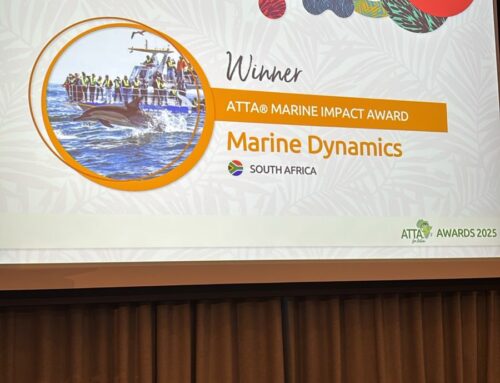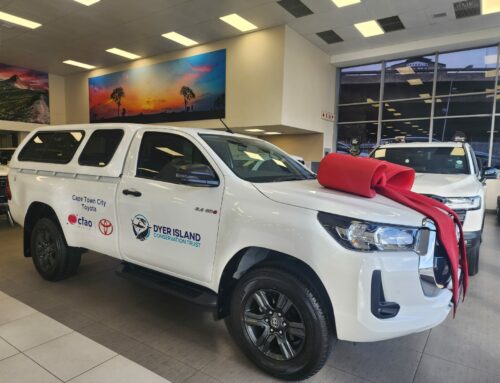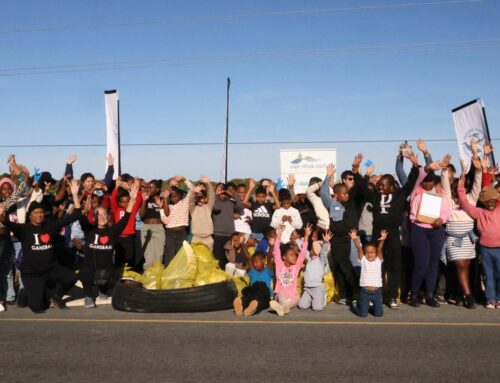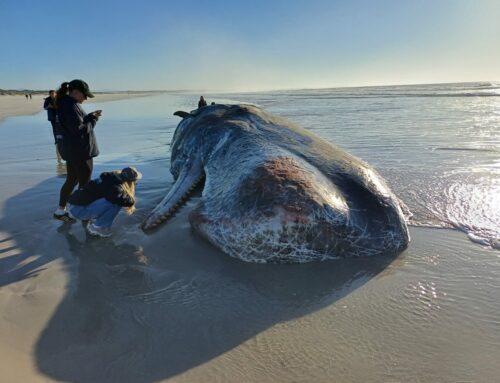Hard at Work for Penguins!
April 16, 2014 by dyertrust
On Wednesday, 12th February 2014, instead of volunteering on Marine Dynamics shark cage diving boat, Slashfin, seven of our International Marine Volunteers had the privilege to visit one of the largest remaining African Penguin colonies in the world, Stony Point in Bettys Bay.
These visits are a fortnightly institution for the Dyer Island Conservation Trust and the International Marine Volunteers. We help with the maintenance of this colony, assisting with alien vegetation clearing, placing of artificial homes for the penguin families and vegetative habitat mimicry.
In addition to receiving a private tour of the boardwalk, which meanders amongst the penguins and other seabirds calling this colony home, this time they were able to assist the seabird monitors working at Stony Point in the preparation for the first breeding season of the African Penguin in 2014.
A quick history on the African Penguin, in their natural habitat they were once quite abundant and were able to burrow down into guano, creating adequate nests to shelter them from environmental factors. Then the guano was harvested off of the islands and sold commercially as fertilizer, and a component of gunpowder. As a direct result the penguins were unable to form nests and were forced to lay their eggs in open scrapings on hospitable terrain. The eggs that survived the forty-day incubation period yielded surviving chicks, but without the safety of a nest they simply became an easy meal for seals, and predatory birds.
Within the past thirty years, the population numbers have declined by ninety percent. The species is predicted to become extinct within the next ten to fifteen years if drastic action is not taken.
The Dyer Island Conservation Trust, that has vowed to save the African Penguin, has created a program that introduces artificial homes in which the penguins can nest and more successfully raise their chicks.
Two years prior to our visit, a residential area was built across the street from the bay. The penguins, which once had free reign of the entire area, were evicted from the neighborhood further limiting their available nesting grounds.

The main job during the volunteers visit was to finish building a fence in order to keep the penguins in the colony and keep the terrestrial predators, such as house cats, from stealing the newborn chicks from the nests.
It was hard work but very rewarding, knowing that the fence would help the Dyer Island Conservation Trust and Stoney Point save African Penguin lives, and promote the conservation of this species!







